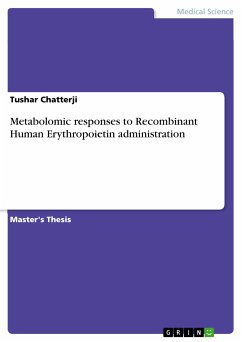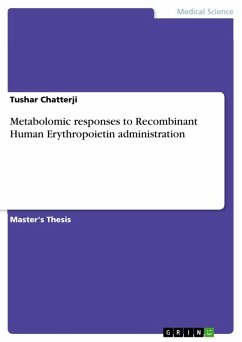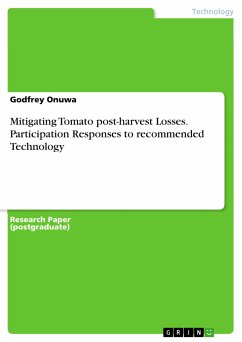Master's Thesis from the year 2011 in the subject Medicine - Biomedical Engineering, grade: B2,Merit, University of Glasgow (Cardiovascular and Medical Sciences), course: Master's of Research Biomedical Sciences, language: English, abstract: Metabolomics is the comprehensive analysis of the metabolite profiles within a biological system. r-HuEPO stimulates red blood cell production, thereby enhancing maximal oxygen delivery to the tissues. The ergogenic potential of r-HuEPO, demonstrated through improved aerobic capacity and performance has reported r-HuEPO to be the most widely abused erythropoietic stimulant till date. This study was aimed at determining the effects of r-HuEPO on the human metabolome by analyzing metabolites from blood plasma and urine. Analysis of these metabolites was then used to determine how such metabolic interactions affected physiological status and exercise performance. Three well trained individuals participated in the study. Blood and urine were collected from the subjects. Plasma and urine samples were analyzed for metabolites by LC-MS Orbitrap and data was analyzed in the form of heatmaps and PCA plots. Further data interpretations for metabolites of interest were performed by a software, mzMatch/PeakML. Analysis of the human metabolome revealed 1000 metabolites which were manually categorized into 190 human metabolites. Significant metabolite patterns in response to r-HuEPO suggested the physiological effects of r-HuEPO on certain metabolites. A better understanding of the metabolic changes mediated by r-HuEPO might provide an insight into the metabolic signals in response to exercise performance.
Bitte wählen Sie Ihr Anliegen aus.
Rechnungen
Retourenschein anfordern
Bestellstatus
Storno









